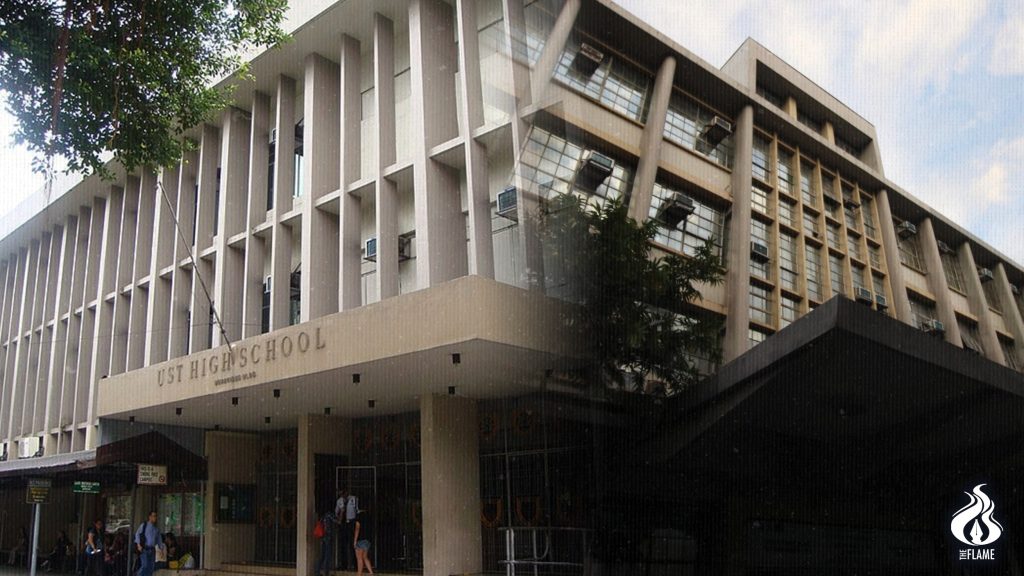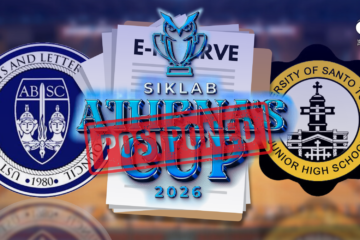
FOUR UST academic units will shift to online learning from Sept. 4 to 17 while the University serves as a local testing center for the 2024 Bar examinations, according to a memorandum released by the Office of the Secretary General.
The Faculty of Arts and Letters (AB), College of Commerce and Business Administration, College of Information and Computing Sciences and junior high school will adopt an enriched virtual mode (EVM) for nearly two weeks to give way to the examinations, which will be held on Sept. 8, 11 and 15 at the Benavides and St. Raymund de Peñafort buildings.
Student organizations housed under the Tan Yan Kee building will also shift to EVM during the examination days because the building will serve as the Supreme Court officials’ headquarters.
The Benavides building houses junior high school students while St. Raymund’s accommodates those from the commerce and AB except the Communication and Journalism departments. The two departments will also conduct online classes despite being housed at the Buenaventura Garcia Paredes, O.P. (BGPOP) building.
According to an Aug. 28 memorandum signed by AB Dean Prof. Melanie Turingan and Regent Fr. George Phe Mang, O.P., classrooms on the 11th floor of BGPOP will be made available to Artlets academic staff who have onsite classes in unaffected units.
Professors are advised to compensate onsite activities through synchronous and asynchronous sessions. Students are also encouraged to engage in online classes as their participation will be recorded through the UST Cloud Campus.
The ingress or the transfer of chairs and tables to the testing venues is set for Sept. 4 and 5, while the egress or the exit of the Supreme Court and Bar officials will be on Sept. 16 and 17.
Disruptive?
Some Artlets said the University’s decision to momentarily shift to online class was “appropriate” and would not affect their learning process since it has long implemented the online modality.
Artlets Student Council (ABSC) Internal Vice President Kevin Crisolo said the shift to online learning is “reasonable” but expressed doubt that BGPOP would provide enough rooms for simultaneous onsite classes.
“Though we have BGPOP that Journalism and Communication Program use for their classes, I think it cannot accommodate the volume of classes from all AB Programs,” Criosolo told The Flame.
UST has been hosting the bar examinations since 2011. Last year, the temporary setup elicited concerns from Thomasians who believe that compromising face-to-face learning for the bar examination is “challenging” and “disruptive” to their learning experience.
Crisolo said while class lectures could be interpreted differently depending on the students’ studying habits, they may only require minor adjustments since faculty members are already equipped to deliver lessons virtually.
“[G]iven the experiences that our professors had in the past years of conducting online classes, I think it will be much easier and smoother to conduct online synchronous classes this time,” he said.
AB implemented a 2:1 onsite to online class ratio for the academic year 2024-2025, with at least 70% of classes being held in person and 30% asynchronously. The setup is also in line with the University’s permanent implementation of the hybrid mode of instruction, which has been put in place since the previous academic year, supposedly to maximize available technologies.
Journalism junior Alyssa Dauz believes that shifting to online for almost two weeks is “valid” but noted that professors and students alike should be considerate of those who would experience delays and technical glitches.
“I don’t think that online classes are foreign to every student. We had a grasp of it and have been doing it for four years now… I guess that if the students and professors still exert the same effort for 13 days as much as the effort they exert during onsite classes, I don’t think it will have drastic effects or negatively impact learners,” she added.
Political Science senior Kyla Ranchez said Thomasians should be proud of the University’s consistent service as a hosting venue for aspiring lawyers because it helps boost their reputation.
“[I]t is also another way to promote our [U]niversity as one of the best universities when it comes to giving the best quality of education,” she added.
However, Ranchez said inclement weather conditions could meddle with learning experiences since not everyone has a stable internet.
“Perhaps what we can also do to ease such concerns, is for instance, having a more continuous concrete conversation with our administrators here in AB by also answering or taking advantage of the constituency checks being offered by ABSC or our program societies so these issues would be properly addressed and students in need of assistance would be accommodated,” she said.
Legal Management sophomore Nicola Bautista expressed concern about the EVM possibly “pushing back” onsite activities, which could also pile up and coincide with the preliminary examinations this October.
“[T]here is a possibility that all the activities that are supposed to be delivered [onsite] will be compressed to that period, possibly resulting in a bigger workload as the preliminary exams are around the corner,” she said.
Before UST, De La Salle University hosted the bar examination until a bombing incident injured over 40 individuals near the area. F — Barbra Althea Gavilan and Ma. Alyanna Selda



